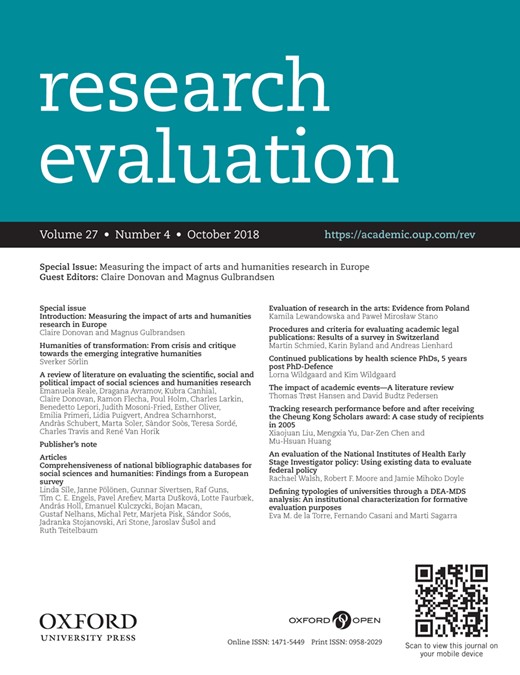-
Views
-
Cite
Cite
Sverker Sörlin, Humanities of transformation: From crisis and critique towards the emerging integrative humanities, Research Evaluation, Volume 27, Issue 4, October 2018, Pages 287–297, https://doi.org/10.1093/reseval/rvx030
Close - Share Icon Share
Abstract
This article draws on the efforts to enhance and incentivize the humanities in the Nordic countries in the last quarter century, with a main focus on Sweden. During this period, bibliometric methodologies and a series of ‘crisis debates’ have formed an image of Nordic humanities as provincial, parochial, and not performing on a par with relatively high levels of achievement in most other science and knowledge fields in the Nordic countries. However, over a period of many years, a parallel collective learning experience has occurred through which the basic evaluation dimensions and criteria have been debated and also deepened. There is now an ongoing move away from the ambition of finding easy-to-operate knowledge management tools, such as performance indicators strictly related to funding systems. In this article it is argued that these tendencies can be linked to the emergence of a new transformations regime of research policy that has gradually taken shape over the past decade and is framing a new generation of humanities knowledge, here called the humanities of transformation, the contours of which are now visible, not least in the Nordic countries. Ultimately, it is possible to identify a far richer and more complex image of quality in the humanities and their performance in the Nordic countries than the one we had when the period of major, structural reform of higher education institutions in the Nordic countries started around 1990.



